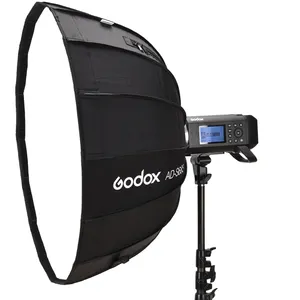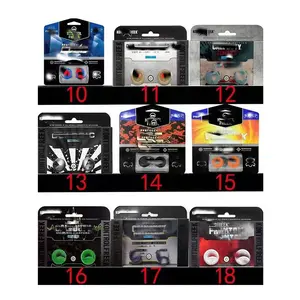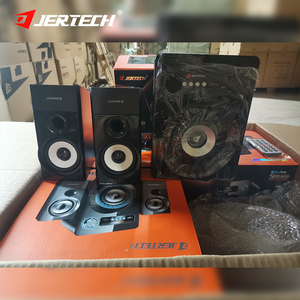Popular in your industry




















































Related Searches:





















 Ready to Ship
Ready to Ship

















































































































Top categories
About home speaker wire
Introduction
Every detail matters in the realm of audio. Even something as seemingly simple as your speaker wire can significantly influence the quality of your sound. This article will guide you through the intricacies of speaker wires, exploring their role in audio quality, common misconceptions, and how to choose the right wire for your home audio system. Whether you're an audiophile or a casual listener, understanding speaker wires can elevate your audio experience.
The Importance of Speaker Wires
Speaker wires are crucial for connecting loudspeakers and audio amplifiers, enabling the transmission of audio signals. The wire's resistance, determined by its length and thickness, significantly impacts its performance. While there's debate about the effect of speaker wire on the signal it carries, expert engineers assert that its electrical resistance is the most important characteristic.
Speaker Wires and Audio Quality
The conductor in speaker wires plays a vital role in audio quality. The size and material of the conductor affect the sound. Silver, being the most conductive metal, results in a brighter sound, while copper gives a more balanced and warm sound. Inferior conductive metals can cause more resistance, altering the sound quality.
Common Misconceptions About Speaker Wires
A common misconception is that spending more on premium cables will significantly improve your audio experience. However, this isn't strictly true. While some cables may alter the sound in minor ways, usually due to length, it's not necessarily a good thing. It means the cable is falling short somewhere. Your cables should not affect your signal, assuming you have the proper connectors, gauge, etc. Even low-quality cables can sound little different than expensive ones, as long as they satisfy the system's requirements.
Choosing the Right Speaker Wire for Your Home
Choosing the right speaker wire involves considering factors like wire material, gauge, and length. Copper, copper-clad aluminum, and oxygen-free copper are common materials, each with their own pros and cons. Gauge, or thickness, affects resistance, with thicker wires reducing resistance. Generally, 16-gauge wire suffices for most home setups, but for longer distances or low-impedance speakers, a thicker 12- or 14-gauge wire is recommended. The length of the wire also impacts resistance, so it's crucial to measure accurately. Lastly, ensure the wire is compatible with your audio system for optimal sound quality.
Wire Material and Quality
Speaker cable material significantly impacts its performance and cost. Copper, the most common material, offers low resistance but oxidizes over time, necessitating good insulation. Silver has less resistance than copper, allowing for thinner wires, but it's more expensive. Gold doesn't oxidize and is suitable for open terminations, but it's rarely used due to its higher resistivity. The purity of the metal used also affects the cost and potential audio quality, with purer metals being more expensive. The impact of cable purity on audio quality is subjective and depends on personal preference.
Wire Gauge (Size)
The gauge, or thickness, of your speaker wire significantly impacts its resistance. Thicker wires or lower gauges have less resistance, allowing more of the source's power to reach the speaker coil, resulting in better sound. The ideal wire gauge depends on the speaker's impedance, wire length, and the wire's own resistance. Copper, the most common wire material, offers low resistance at a reasonable cost. However, silver, while more expensive, provides even lower resistance, allowing for thinner wires.
Length and Distance
The length of your speaker wires can significantly impact the audio quality. Shorter cables are generally preferred as they minimize signal loss during transmission. However, longer cables may be necessary due to room layout or equipment location. In such cases, it's crucial to understand that longer speaker cables can add impedance and potentially lead to power loss. Therefore, it's recommended to keep speaker cables under ten feet where possible. Remember, the quality of the cable becomes even more critical with longer runs to protect the signal and maintain sound quality.
Compatibility with Your Audio System
Choosing the right speaker wire for your audio system is crucial. The wire gauge, or thickness, plays a significant role in this. For instance, a 12-gauge wire is thicker than a 14-gauge wire, offering less resistance to current flow. This makes it ideal for longer runs, high-power situations, and lower-impedance speakers. For standard 8-ohm speakers within 50 feet of the receiver, 16-gauge wire suffices. If your speakers are more than 50 feet away, or you're using a high-current amplifier or lower-impedance speakers, 14-gauge is recommended.
Installation Tips for Optimal Sound Quality
Proper installation of speaker wires is crucial for achieving the best sound output. Once the wires are installed, you can power on your receiver, adjust your settings for the optimal listening experience, and enjoy the enhanced audio quality.
Wire Placement and Routing
Proper wire placement and routing are crucial for optimal sound quality. For instance, if you need to run wire inside your walls, it's important to use UL-rated speaker wire labeled CL2 or CL3. 4-conductor cables are versatile and great for running a single cable between your amplifier or receiver to an in-wall volume control in another room. If you want to install your outdoor speaker wire underground, you'll need wire rated for direct burial.
Connection and Polarity Check
Ensuring correct speaker wire polarity is crucial for optimal sound quality. Speaker polarity is determined when connecting the wires between the amplifier and the speaker. If the positive amplifier terminal is connected to the positive speaker terminal and the negative amplifier terminal is connected to the negative speaker terminal, the speaker will be in correct polarity. If these connections are swapped, the speaker will be in reverse polarity. Incorrect polarity can alter the sound quality, but it won't damage your speakers or amplifier. Therefore, it's best to stick to the standard and ensure correct wiring.
Maintaining Your Speaker Wires
Maintaining your speaker wires is crucial for optimal audio performance. Regularly power down and disconnect your system for cleaning. Use electrical contact cleaner and microfiber cloths to clean each connector, removing dirt, dust, or oxidation. For interconnects, use a Q-Tip with cleaning solution. Over time, cables accumulate static charge, which can be dissipated by wiping down the cables with a damp cloth. Avoid using it on connectors as it can leave residue, affecting the cable's effectiveness.
Regular Inspection and Cleaning
Maintaining your speaker wires involves regular inspection and cleaning. Over time, cables accumulate static charge and attract dust particles. To clean your cables, use an electrical contact cleaner and microfiber cloths to remove dirt or oxidation from the connectors. For interconnects, apply a few drops of the cleaning solution to a Q-Tip and carefully clean the connectors. To prevent static build-up, wipe down the cables with a damp cloth.
Replacing Old or Damaged Wires
If your speaker wire isn't long enough to connect it to the amp, you can twist the wires together and tape them for a quick fix. However, this isn't a great long-term option as the wires can pull apart and short out your system. For a more permanent solution, use crimp connectors or solder the wires together.
Conclusion
The choice of speaker wire is a critical component in achieving audio perfection. From understanding the role of wire material and gauge to considering the length and compatibility with your audio system, every aspect plays a significant role in the overall sound quality. Proper installation and maintenance are equally important, ensuring the longevity and performance of your speaker wires. With the right knowledge and considerations, you can optimize your home audio system for the best possible sound. Remember, your speaker wires are not just connectors; they are the lifeline of your audio experience.


























































